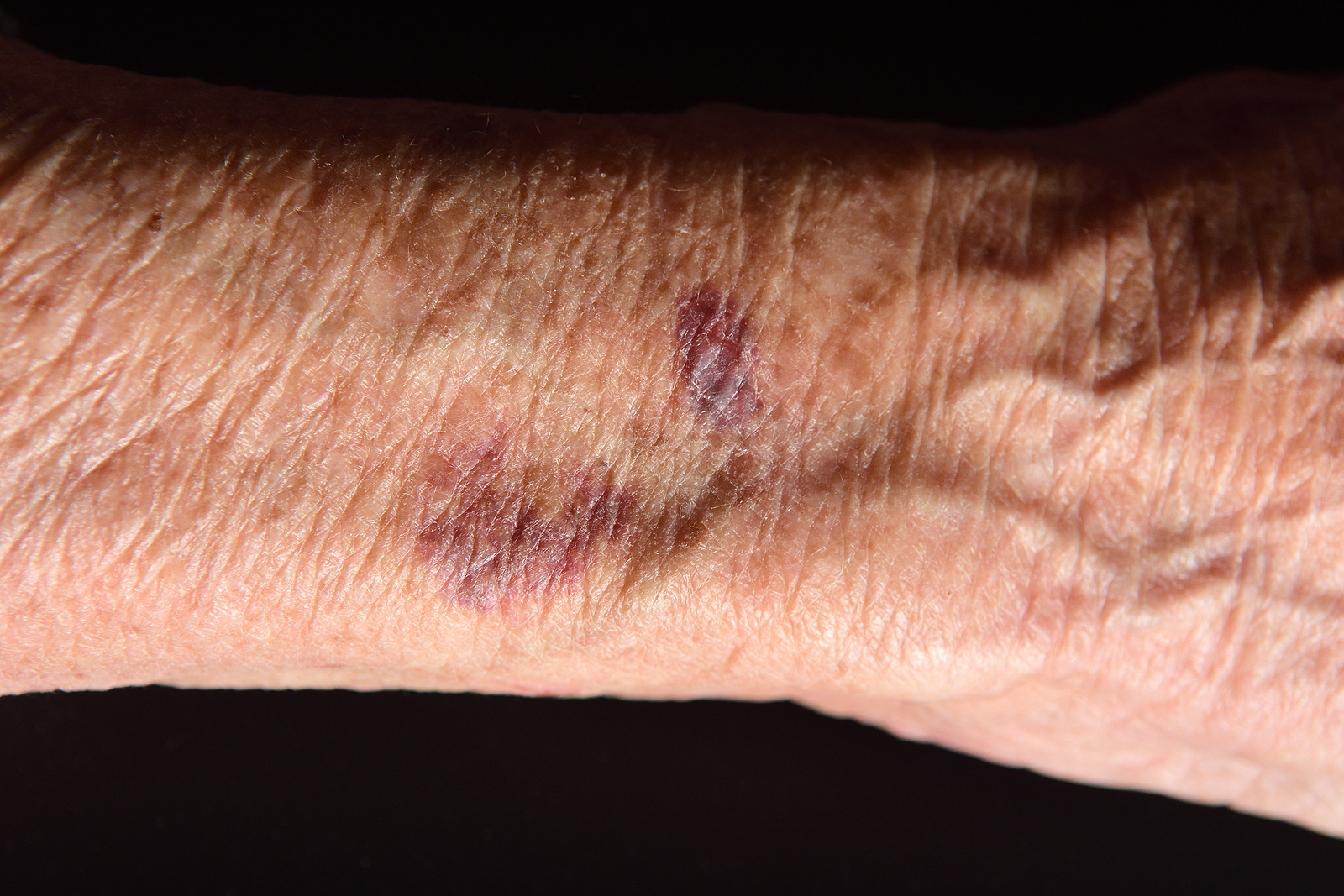If you have been concerned by bruises that seem to appear daily on your senior parent you’re not alone, and it’s not all in your head. Seniors do bruise very easily because of the natural changes in their skin that happens with age.
Bruises happen when small capillaries in the skin break, which causes blood to leak out in to the surrounding tissue. Eventually that blood gets absorbed, and the bruise goes away. But until that happens seniors may have pain, swelling, or tenderness near the bruise. Severe bruises may even need medical attention.
Bruise Development
In younger people it can take quite a severe blow to cause a bruise. But because seniors have thinner and more delicate skin they bruise easily. Seniors can become bruised from doing everyday activities like showering or walking around the house if they bump a hand or stub a toe.
Personal care at home can help seniors avoid bruising while bathing, getting dressed, or performing other activities of daily living. If you have noticed that your senior parent is getting a lot of bruises talk to them about personal care at home. You can also use these tips below to care for bruises at home.
Assess the Severity Of The Bruise
If the bruise is large, close to the skin, or looks angry take your senior parent to the doctor or urgent care. You don’t want to risk the possibility of there being a puncture that you don’t see which could let bacteria in and cause an infection.
Apply Ice Packs
Apply an ice pack to the bruised area as soon as possible, especially within the first 24 hours. Use a cloth or towel to cover the ice pack and avoid direct skin contact to prevent frostbite. Apply the ice for 15-20 minutes at a time, allowing the skin to warm up between sessions.
Elevate To Decrease Swelling
If you notice that the area is swollen have your senior parent sit down and elevate the affected limb if possible. If the bruise is on the leg, encourage your senior parent to keep their leg elevated while sitting or lying down. This will help prevent swelling and can slow down the flow of blood to the affected area.
Gentle Massage
Once the initial swelling has subsided, gentle massage around the bruised area can promote blood circulation and help in the resolution of the bruise. Use a mild, fragrance-free lotion to avoid irritation.
Protect the Bruise
Encourage your senior parent to protect the bruised area from further injury. This may involve wearing protective clothing or using cushions and padding to minimize the risk of accidental bumps or knocks. Even just wearing long sleeve clothing and pants instead of shorts can help prevent serious bruises.
Know The Signs of Infection
Keep a close eye on the bruised area for any signs of infection, such as increased redness, warmth, swelling, or discharge. If these symptoms occur, seek medical attention promptly.
Make The House Safer For Your Senior Parent
To prevent future bruises move furniture out of the way, install handrails, remove carpets, and make sure there is nothing that your senior parent can trip on or fall into.














